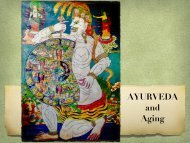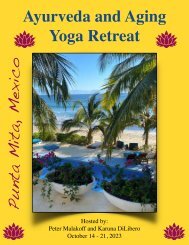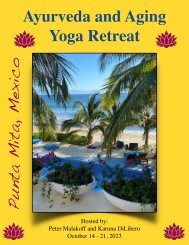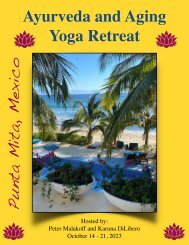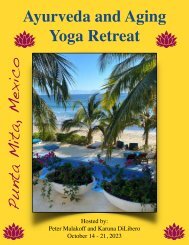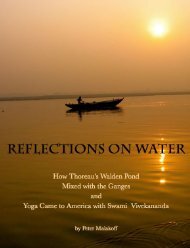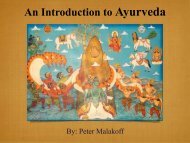How Thoreau's Walden Pond Mixed with the Ganges and Yoga Came to America with Swami Vivekananda
One early morning in 1846, during the coldest days of a New England winter, Henry David Thoreau looked out the window of his small cabin on Walden Pond and saw men cutting its ice into blocks. That ice was hauled by horse to a railroad that ran across the western edge of Walden Pond, packed into a boxcar, taken to Boston and loaded onto a clipper ship that sailed to Calcutta, India, arriving about four months later. Once there, that ice was purchased by grateful members of the East India Company. Thoreau had witnessed a small part of the global ice trade between New England and India that took place during the latter part of the nineteenth century. When Thoreau considered the ice trade, his vision sailed on metaphors far beyond the scope of business. The waters he imagined flowed both east and west and carried not just natural elements, but culture, religion and philosophy as well. He envisioned that after arriving in Calcutta, the New England ice of Walden Pond would eventually melt and run downhill where it would join with the sacred water of the Ganges. He wrote in Walden: "It appears that the sweltering inhabitants of Charleston and New Orleans, of Madras and Bombay and , drink at my well. In the morning I bathe my intellect in the stupendous and cosmogonal philosophy of the , since whose composition years of the gods have elapsed, and in comparison with which our modern world and its literature seem puny and trivial; and I doubt if that philosophy is not to be referred to a previous state of existence, so remote is its sublimity from our conceptions. I lay down the book [Bhagavad-Gita] and go to my well for water, and lo! there I meet the servant of the Bramin, priest of and and who still sits in his temple on the Ganges reading the , or dwells at the root of a tree with his crust and water jug. I meet his servant come to draw water for his master, and our buckets as it were grate together in the same well. The pure Walden water is mingled with the sacred water of the Ganges." This book tells the story of these waters . . .
One early morning in 1846, during the coldest days of a New England winter, Henry David Thoreau looked out the window of his small cabin on Walden Pond and saw men cutting its ice into blocks. That ice was hauled by horse to a railroad that ran across the western edge of Walden Pond, packed into a boxcar, taken to Boston and loaded onto a clipper ship that sailed to Calcutta, India, arriving about four months later. Once there, that ice was purchased by grateful members of the East India Company. Thoreau had witnessed a small part of the global ice trade between New England and India that took place during the latter part of the nineteenth century.
When Thoreau considered the ice trade, his vision sailed on metaphors far beyond the scope of business. The waters he imagined flowed both east and west and carried not just natural elements, but culture, religion and philosophy as well. He envisioned that after arriving in Calcutta, the New England ice of Walden Pond would eventually melt and run downhill where it would join with the sacred water of the Ganges. He wrote in Walden: "It appears that the sweltering inhabitants of Charleston and New Orleans, of Madras and Bombay and , drink at my well. In the morning I bathe my intellect in the stupendous and cosmogonal philosophy of the , since whose composition years of the gods have elapsed, and in comparison with which our modern world and its literature seem puny and trivial; and I doubt if that philosophy is not to be referred to a previous state of existence, so remote is its sublimity from our conceptions.
I lay down the book [Bhagavad-Gita] and go to my well for water, and lo! there I meet the servant of the Bramin, priest of and and who still sits in his temple on the Ganges reading the , or dwells at the root of a tree with his crust and water jug. I meet his servant come to draw water for his master, and our buckets as it were grate together in the same well. The pure Walden water is mingled with the sacred water of the Ganges."
This book tells the story of these waters . . .
You also want an ePaper? Increase the reach of your titles
YUMPU automatically turns print PDFs into web optimized ePapers that Google loves.
not dead. Ancient India lies dreaming, its breathing soft, a massive body of<br />
revelation, full of <strong>the</strong> taste of all things mixed <strong>to</strong>ge<strong>the</strong>r, mysterious as a<br />
boundary at <strong>the</strong> end of space. Let us not forget this l<strong>and</strong> has given birth <strong>to</strong> an<br />
abundance of saints, sages, religions, philosophies, arts, sciences, s<strong>to</strong>ries <strong>and</strong> a<br />
wealth of ideas that continue <strong>to</strong> inspire <strong>and</strong> illuminate <strong>the</strong> whole world.<br />
In our time <strong>the</strong> internet offers a tremendous amount of quickly searchable<br />
information, but this does not make one wise, any more than memorizing<br />
every page in an encyclopedia would do so. Like never before in his<strong>to</strong>ry, we<br />
are deluged by oceans of information, news <strong>and</strong> entertainment, overwhelming<br />
our ability <strong>to</strong> feel. Without feeling we cannot evaluate, <strong>and</strong> when we lose our<br />
ability <strong>to</strong> judge things, we are lost. Feeling is found in small things. When <strong>the</strong>re<br />
is <strong>to</strong>o much news, <strong>to</strong>o much information <strong>to</strong> process, when life is <strong>to</strong>o big or <strong>to</strong>o<br />
fast, our feeling is disturbed; we are isolated, powerless <strong>to</strong> affect things <strong>and</strong><br />
seek <strong>to</strong> distract ourselves through indulgence or idealism. We need not just<br />
information <strong>and</strong> knowledge, but also discrimination <strong>and</strong> love <strong>to</strong> find our way.<br />
This is what <strong>the</strong> ancients called wisdom, it is <strong>the</strong> age-old necessity <strong>and</strong> it has<br />
not changed.<br />
“There is only God. The world is false. God is <strong>the</strong> world.” This statement is<br />
<strong>the</strong> great paradoxical Truth at <strong>the</strong> heart of Vedanta <strong>and</strong> <strong>the</strong> message of its<br />
greatest sages. It involves <strong>the</strong> sacrifice of self <strong>and</strong> always has. The ultimate<br />
teachings of Vedanta were originally given only <strong>to</strong> qualified aspirants;<br />
however, now, along <strong>with</strong> so much else, <strong>the</strong>se teachings are available <strong>to</strong> every<br />
man <strong>and</strong> woman in our day <strong>and</strong> age, in books<strong>to</strong>res <strong>and</strong> weekend seminars.<br />
But <strong>the</strong> requirements <strong>to</strong> Realize <strong>the</strong> Truth of this knowledge have not<br />
changed. These qualifications have little <strong>to</strong> do <strong>with</strong> what we believe or<br />
whe<strong>the</strong>r we have intellectual sympathy <strong>with</strong> <strong>the</strong> teachings. They have <strong>to</strong> do<br />
<strong>with</strong> something far more fundamental - our state of consciousness or point of<br />
view <strong>and</strong> <strong>the</strong> preliminary <strong>to</strong> such realization is purification <strong>and</strong> practice.<br />
Most of us simply turn away from <strong>the</strong> mystery of God or Reality, satisfied<br />
<strong>with</strong> assumptions we already believe. We dismiss religious belief as cults <strong>and</strong><br />
98







